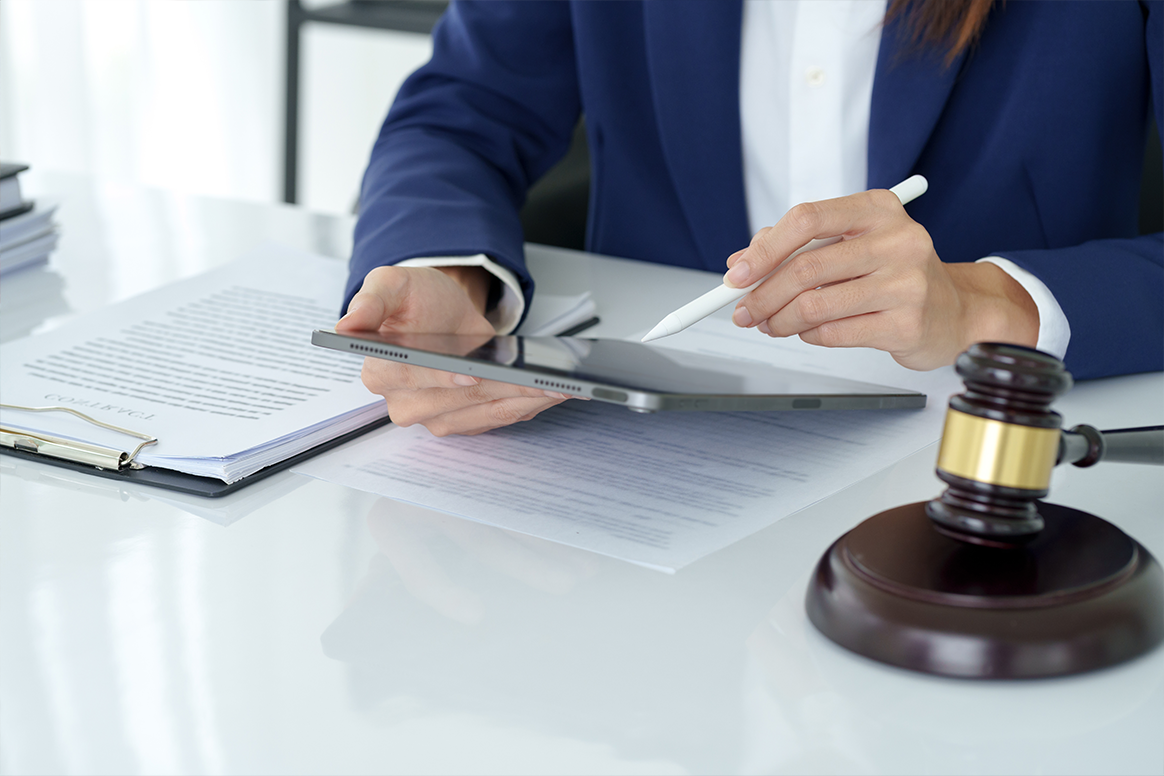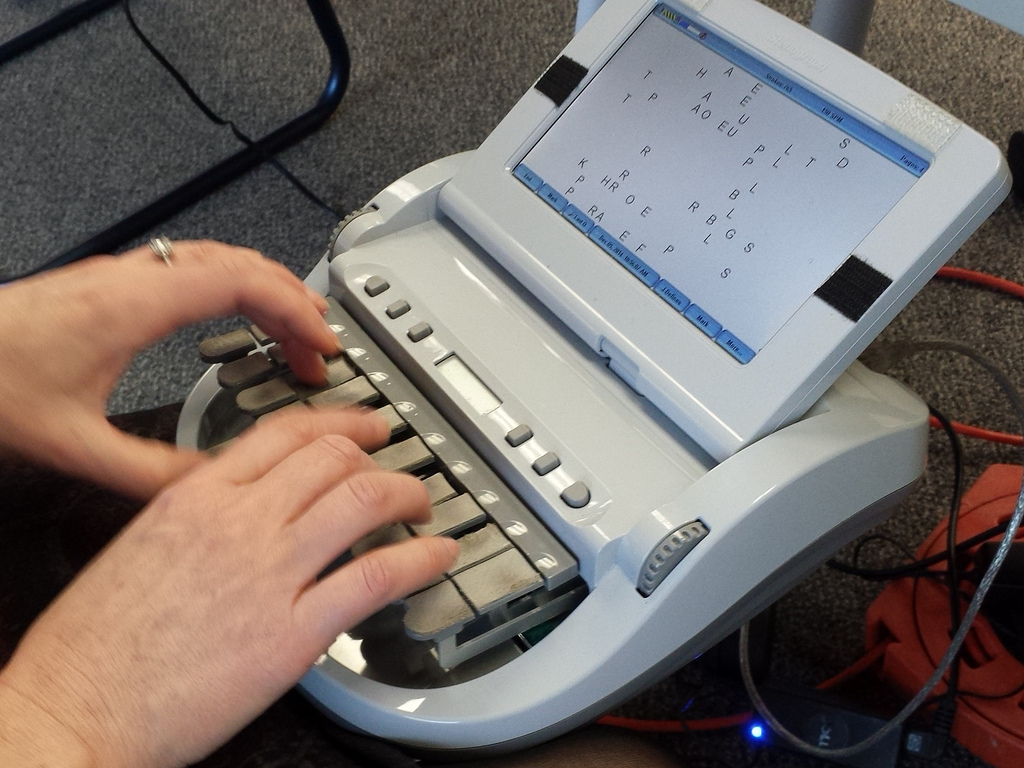The Future of court reporting: How Voice Recognition Is Modernizing Legal Transcriptions
The Future of court reporting: How Voice Recognition Is Modernizing Legal Transcriptions
Blog Article

The Future of Court Reporting: Advancements and Trends Shaping the Sector
As you explore the future of court reporting, you'll observe a change driven by modern technology and development. Real-time transcription and AI applications are improving just how lawful proceedings are recorded. It raises questions about the function of court reporters and the skills they'll need moving ahead.
The Effect of Expert System on Court Coverage
As artificial knowledge continues to advance, it's improving the landscape of court reporting in means you may not anticipate. AI can examine vast quantities of legal message, assisting you determine appropriate precedents and simplify case preparation.
Furthermore, AI can improve the preparation process by using predictive analytics, which can help you expect test end results based on historical information. With AI taking care of routine tasks, you can focus a lot more on your core duties, such as guaranteeing accuracy and giving vital lawful understandings.
Real-Time Transcription: Enhancing Accuracy and Performance
Real-time transcription has actually reinvented the court reporting procedure, making it simpler than ever for you to capture exact records instantly. With innovative innovation, you can now provide immediate transcripts during hearings or depositions, guaranteeing that all celebrations have access to crucial details immediately. This immediacy not just improves the general effectiveness of the legal process but also allows you to concentrate on the discussion, as opposed to rushing to catch up.
As you utilize real-time transcription, you'll notice a substantial decrease in errors, thanks to automated checking tools that flag disparities as you type. Additionally, customers value the ability to assess transcripts promptly, enabling quicker decision-making and smoother process. By accepting this development, you're not just improving your workflow; you're establishing a new standard in court coverage that prioritizes precision and effectiveness. This forward-thinking approach placements you at the leading edge of the developing lawful landscape (court reporting).
The Rise of Remote Depositions

With the growing need for adaptability in legal proceedings, remote depositions have become a game-changer in court coverage. You can currently join depositions from anywhere, eliminating travel time and prices. This convenience enables you to concentrate on what genuinely matters-- preparing your case.
Remote depositions use sophisticated modern technology, making it possible for real-time communication and document sharing. You can engage with witnesses and attorneys flawlessly, making specific that everybody stays connected regardless of their physical location. This method not only saves time but also expands your pool of specialist witnesses, as geographical obstacles come to be much less of a problem.
As remote depositions gain popularity, it's vital to adjust to this brand-new norm. Familiarize on your own with the essential devices and procedures to ensure a smooth experience - court reporting. Embracing this technology can offer you an affordable side, allowing you to navigate the ever-evolving landscape of lawful procedures efficiently
Digital Courtrooms: Transforming the Lawful Landscape
As you step right into the globe of digital courts, you'll discover just how digital hearing modern technology is reshaping lawful procedures. This shift not just makes access easier yet likewise boosts transcription accuracy, ensuring every word is caught correctly. Accepting these developments can substantially improve the efficiency of the lawful process.
Online Hearing Modern Technology
While the traditional courtroom setup has actually long been a sign of justice, the increase of online hearing technology is improving exactly how legal proceedings are conducted. In enhancement, digital hearings can improve involvement, enabling witnesses and specialists to provide testament without the restraints of place. As you adapt to these changes, you'll see that digital hearings preserve the integrity of the lawful process while welcoming technology, eventually transforming the means justice is offered in the modern globe.
Boosted Transcription Accuracy
Enhanced read transcription precision is reinventing the legal area, making court procedures much more reputable than ever. With innovations in speech recognition technology and AI-driven tools, you can expect to see a significant reduction in transcription errors. These innovations not only record every word talked however likewise represent nuances in tone and context, enhancing general understanding. As a result, important information aren't shed in translation, making sure that the integrity of the legal process is kept. Moreover, real-time transcription permits you to gain access to exact records immediately, promoting smoother communication during tests. Welcoming these technologies indicates you're tipping right into a future where clarity and precision in lawful documentation are vital, ultimately benefiting all celebrations associated with the judicial system.
The Duty of Court Reporters in Virtual Hearings
Court press reporters play a vital function in virtual hearings, assuring that every word talked is properly recorded and recorded in real-time. As a court reporter, you help with interaction in between celebrations, making complicated legal process accessible. Your know-how in legal terminology and the ability to promptly adjust to numerous audio speakers are critical in this digital environment.
Throughout online hearings, you preserve an unwavering focus, even in the middle of technological obstacles or disturbances. You supply a clear, written record that can be referenced later on, aiding judges, lawyers, and clients understand the process. Your skills in steering various platforms guarantee that you can flawlessly integrate right into any kind of online setup.
In addition, you also assist support the honesty of the judicial process, confirming that every individual's voice is heard. By doing this, you not just improve the performance of lawful procedures but also add to the overall justness and openness of the justice system.
Technologies in Documentation and Record Maintaining
As technology develops, technologies in documentation and record maintaining are changing just how stenotype reporter catch and take care of legal transcripts. You'll discover that electronic devices enable quicker and more precise transcription, lowering the chances of human error. Cloud-based storage options allow you to securely store and accessibility records from anywhere, making collaboration with legal teams seamless.
Fabricated knowledge is additionally playing a considerable function, aiding with real-time transcription and even offering smart modifying functions. These innovations not just boost performance yet also guarantee that you can offer top notch documents in a busy lawful atmosphere.
Additionally, the combination of voice acknowledgment software program streamlines the process, allowing you to concentrate a lot more on the subtleties of the procedures as opposed to simply inputting. By embracing these developments, you're placed to raise your skills and meet the needs of modern-day court reporting properly.
Future Skills and Training for Court Reporters
While innovation reshapes the landscape of lawful procedures, it's vital for court reporters to adjust by obtaining new abilities and training. You'll require to acquaint on your own with innovative transcription software program and electronic reporting devices to stay competitive. Welcoming expert system and real-time captioning will boost your Recommended Site efficiency and precision.
Furthermore, creating strong study and analytical skills is crucial. You'll commonly come across complex legal lingo and procedures, so recognizing legal principles will develop your reporting. On-line training courses and workshops can supply valuable insights right into these areas.
Connecting with other specialists will additionally help you remain updated on sector trends. Signing up with companies or going to meetings can expose you to brand-new technologies and finest practices.
Ultimately, honing your interpersonal abilities will certainly improve interaction with lawyers and clients. By concentrating on these areas, you'll position yourself for success in the evolving field of court coverage.
Regularly Asked Questions

What Credentials Are Required to End Up Being a Stenotype Reporter Today?
To end up being a court press reporter today, you'll need a senior high school diploma, specialized training in court reporting, and certification, frequently through a nationwide test. Solid typing abilities and focus to information are necessary for success.
Exactly How Can Court Reporters Stay Updated With New Technologies?
To remain upgraded with brand-new modern technologies, you must go to workshops, join specialist organizations, and subscribe to pertinent magazines. Networking with peers and taking part in on the internet discussion forums can additionally maintain you informed concerning the most current improvements.
What Is the Average Wage for Court Reporters Currently?
The typical wage for stenotype reporter varies by place and experience, however you can expect around $50,000 to $70,000 each year. In some areas, experienced press reporters can earn a lot more, especially with specialized abilities.
Are There Task Opportunities for Court Reporters in Non-Legal Fields?
Yes, there click to read more are job possibilities for court reporters in non-legal areas. You can find duties in closed captioning, transcription solutions, and media, where your skills in recording spoken language are highly valued and demanded.
Exactly How Does Court Reporting Differ in Different Nations?
Court reporting varies substantially across nations. You'll locate differences in terms, technology, and legal systems. As an example, some nations stress digital reporting, while others still depend on conventional stenography approaches for capturing spoken words.
Report this page